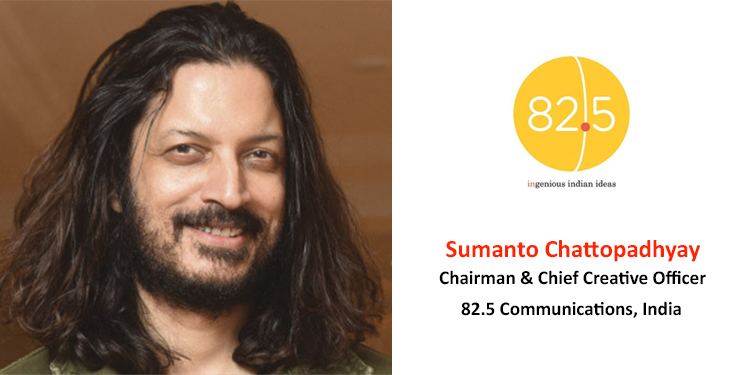Mumbai: The Covid-19 crisis has certainly changed the entire creative and communications industry. Agencies nowadays are not only creating campaigns remotely but are also pitching for new businesses. The travel and commuting time saved in a day has resulted in improved efficiency and productivity. While there has been an impact on storytelling because of the lockdown; our advertising folks have converted the crisis into an opportunity by taking storytelling to the next level.
In an effort to continuously innovate around the Covid-19 coverage on the Media, Marketing, and Advertising universe, Medianews4u brings to you creative veterans who share their views on how storytelling has changed and evolved in times of Covid-19.
The Content Master of 82.5 Communications – Sumanto Chattopadhyay – Chairman & Chief Creative Officer, talks exclusively to Medianews4u about storytelling in times of Covid-19.
Has storytelling been hampered by content production coming to a standstill? What is 82.5 doing to ensure a continuous flow of content for its clients?
Like water finding channels to flow through, creativity always discovers away. A big part of our internal workshops was to find those ways. And we did. Some of us became photographers, for example.
Out of our Bangalore office, we created an important campaign for Aangan Trust to help victims of domestic violence during the lockdown. The photography was done not only by the art director on the project but our branch head and studio manager too. Some of the images were selfies, others were pictures of a mother, daughter, or girlfriend. This shows two things: Necessity is the mother of creativity. And creativity is not restricted to the creative department.
We have used stock, crowdsourced footage, animation to keep 82.5’s storytelling going. We have repurposed parts of old ads to create new communication. We have recorded music tracks with music directors who have a set-up at home and can sing and play instruments themselves. We have outsourced certain aspects of the work to countries where technicians are not under lockdown.
We created communication across brands on Mother’s Day (Luminous, Vasmol, Jeeru, and Nestlé A+), a particularly sensitive time for those separated from their mothers because of lockdown. Earlier, we had created a video for Nestlé on the occasion of Bengali New Year, where we used a Tagore song that is traditionally sung on that occasion. The lyrics are about getting rid of the negative things – including disease – of the past year. This had heightened relevance during the pandemic.
Earlier, I used to get someone else to shoot the videos for The English Nut (my social media avatar). I have learned to do it myself now. Self-sufficiency is another lesson of the pandemic.
Every day has been a new discovery. Keeping an open mind and being flexible is the key.
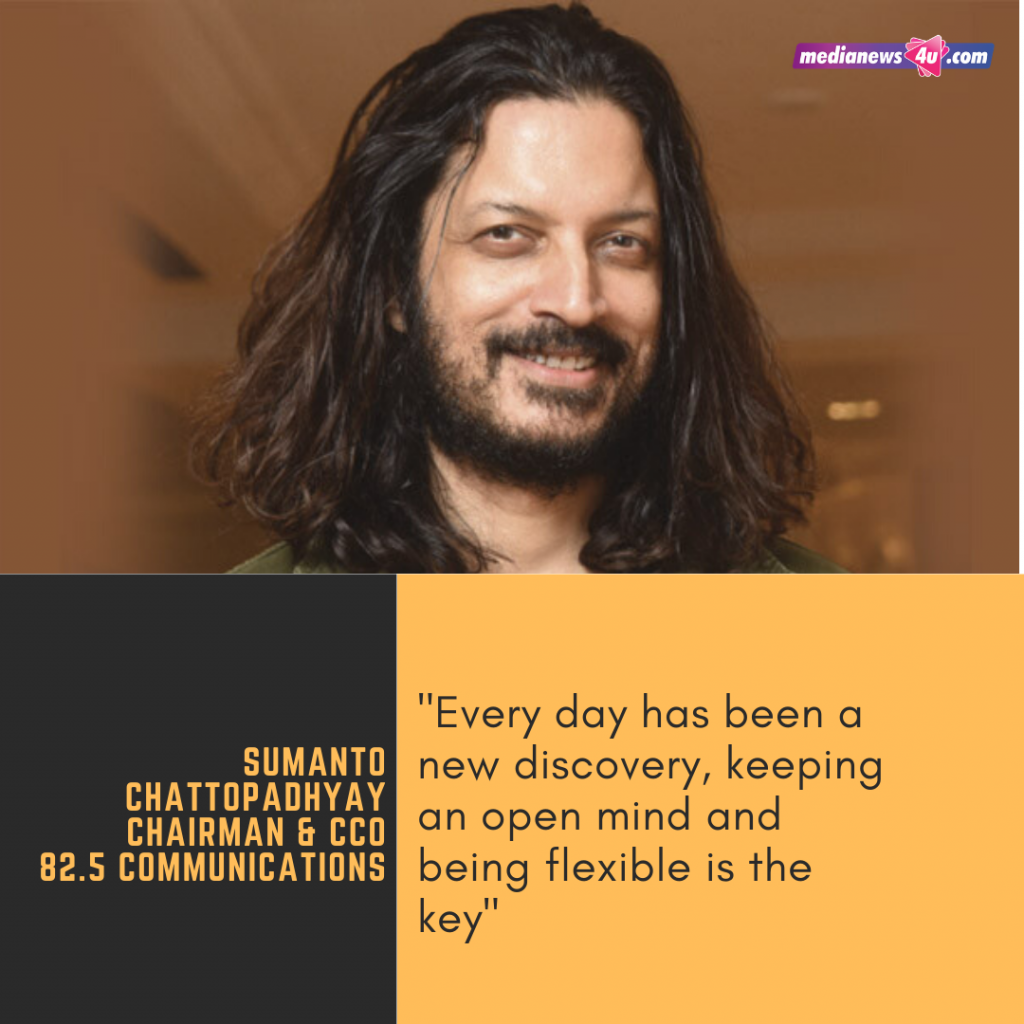
In these times, how are you keeping up the morale of your teams that are working remotely? What are you doing to make sure that the mental health of employees remains stable?
While nothing can fully replace direct human contact, we are fortunate to have technology that allows us to approximate it. We have been on video calls throughout the day for work, workshops, and just to catch up with each other. We have celebrated the usual milestones like birthdays and farewells – virtually toasting our colleagues, drink in hand. We have attended fun webinars. We have even played games like dumb charades. Video conferencing has been a boon.
We have a vibrant WhatsApp group with all our employees across our four-city offices – in which we share everything from jokes to the latest information on the lockdown to fun content that our own people create.
So far, touch wood, we have weathered the storm well.
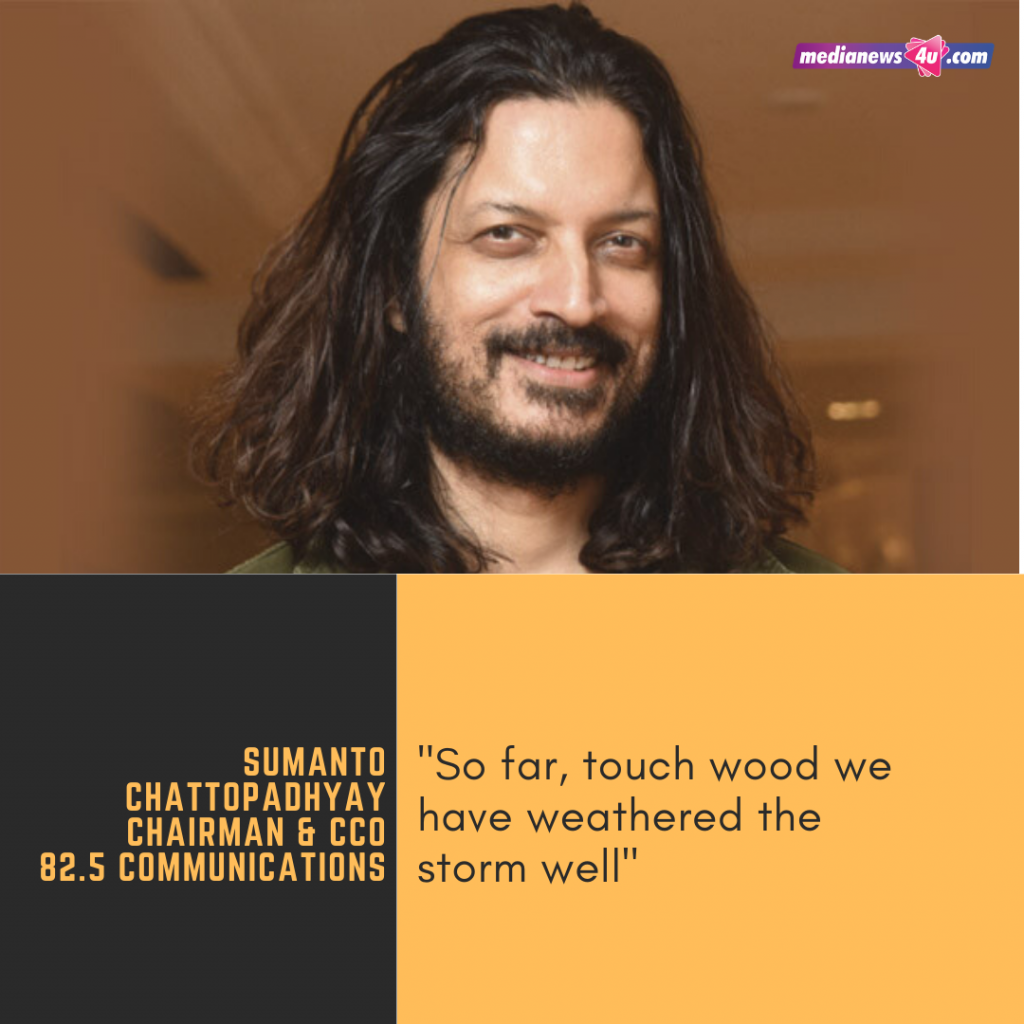
How has your experience of working from home been?
Covid-19 actually made me love and appreciate my home more than ever before. It is a safe haven, my oasis of peace. It is conducive to uninterrupted thinking and focussed work. Life at the moment is a throwback to my college days in the US when I had to do my own cooking and cleaning along with my studies. I feel I have gone back in time to that life—minus the physical classes of course. I have actually enjoyed it. If worries about health, the economy, and our industry were absent, this life would not be bad at all.
What is important while working from home is to realize that it puts greater demands on the process of teamwork. One should take extra care to maintain the cohesiveness of the team. One also needs to learn the new etiquette of collaborating exclusively through audio calls, emails, messaging services, and video calls. Every time you contact someone through one of these means, it is the equivalent of going over to their workstation and ‘interrupting’ them. You have to do it sensibly so it does not become an intrusion.
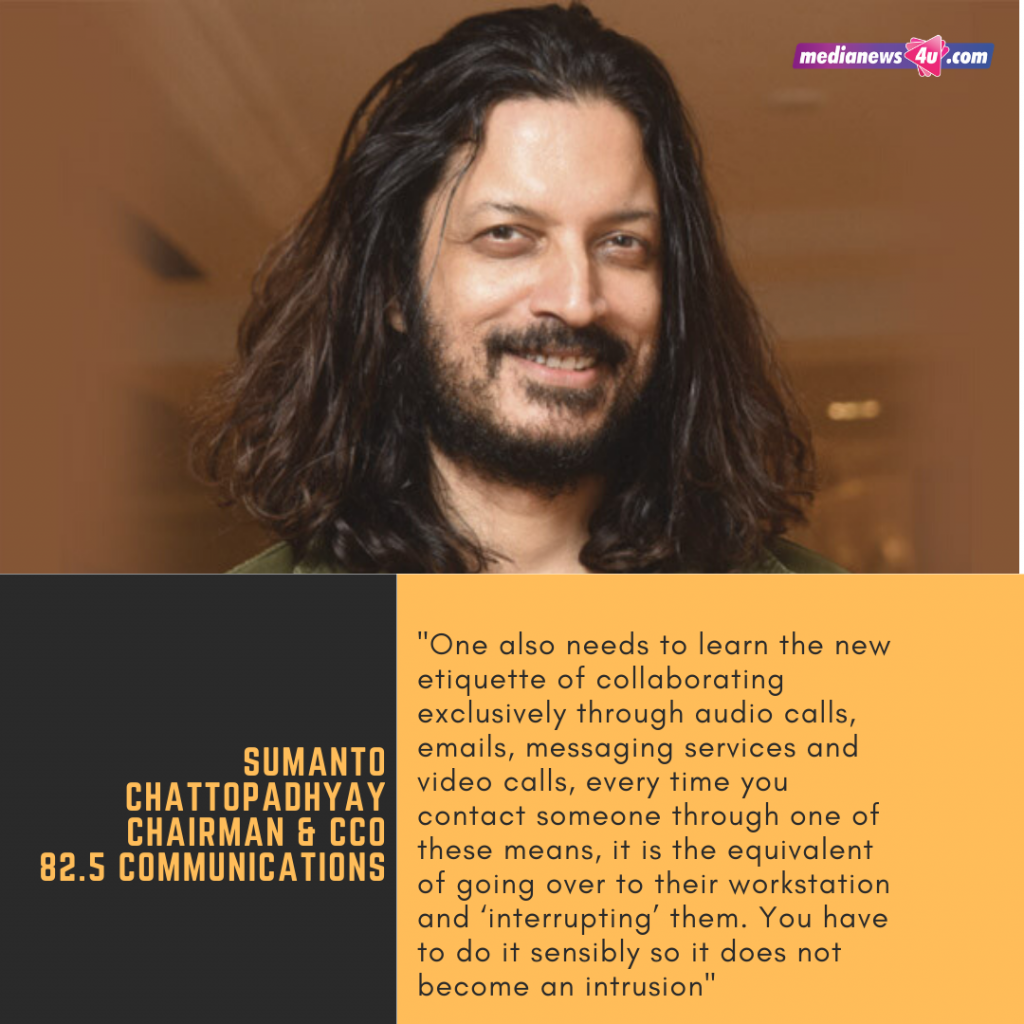
As a creative veteran what are some of your learnings from this crisis?
I learned that we humans have a capacity to adapt that we ourselves are not aware of. Covid-19 has put us back in touch with that part of ourselves.
I learned that it is possible to create out-of-the-box work while being stuck inside a box.
I learned that, no matter what the scenario, three things are always relevant: communication, communication, and communication.
According to you how will storytelling shape up post the lockdown? Do you see any ‘new normal’ being adopted post the lockdown?
The ‘new normal’ soon becomes simply the ‘normal’. We stop being conscious that we are doing things differently. But truth be told, things are going to be different. Till we are able to bring this disease under control, which is going to take a long time, we will have to do things differently – be it going local or telecommuting. Corporate India thought of working from home as a substandard way of working – something done by people without a ‘serious’ job. That will change.
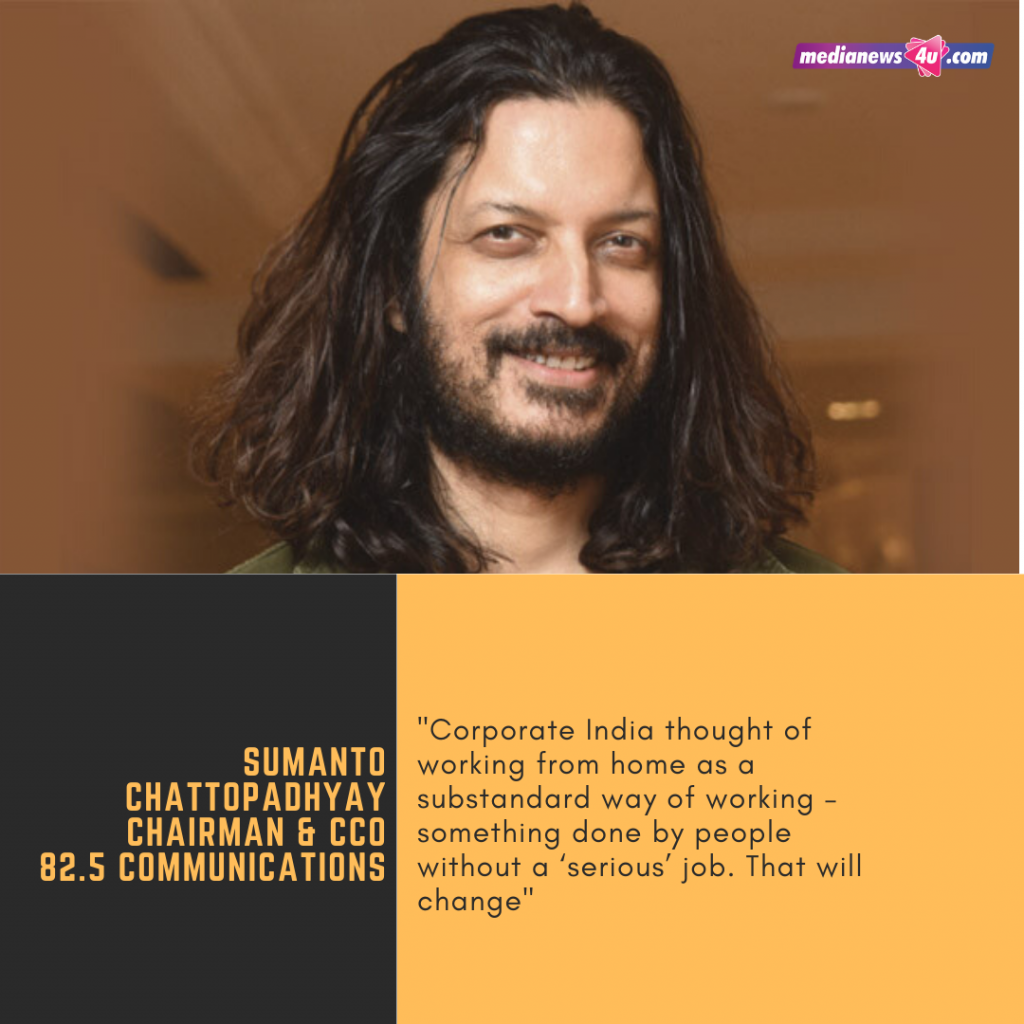
In some ways we will slowly go back to the ‘old’ normal. But certain changes are here to stay for the foreseeable future. Masks had become a common sight in countries which were affected by SARS in the past, for example. The habit stayed with them even after the rules were lifted. Similar things will happen in India now. And they will be woven unselfconsciously into the narrative of our storytelling.

